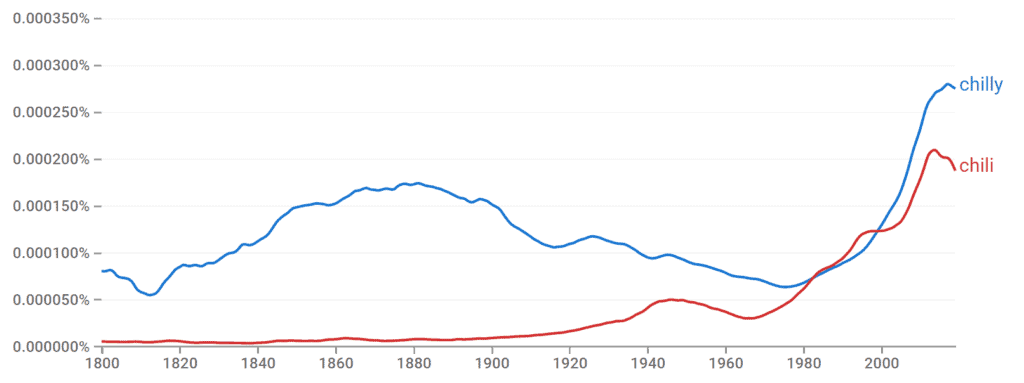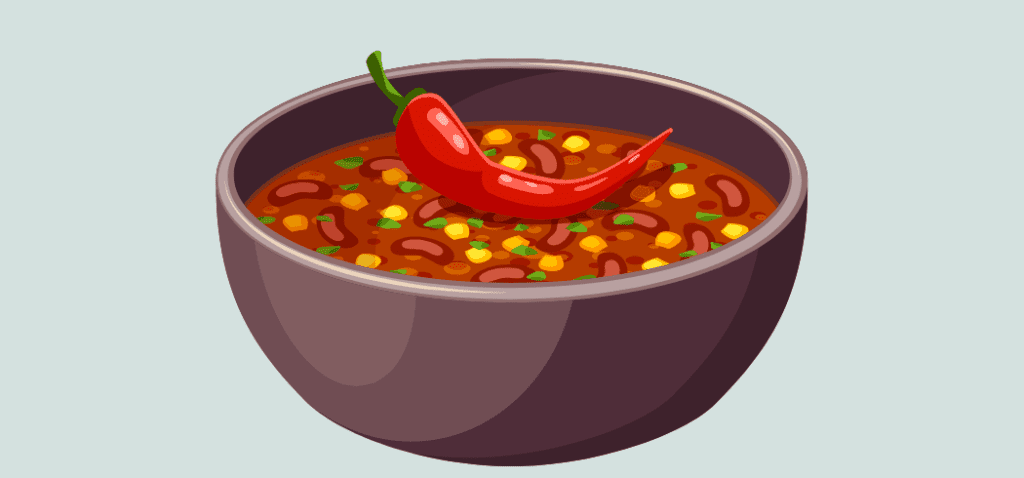You’ve probably seen different spellings for chili, such as chilli and chile. And you’ve also read the word chilly several times. These words can be confusing, but you’re not alone. I get them confused when writing all the time.
So, what’s the difference between chili and chilly? We’ll answer that question in this guide. You’ll also learn how to properly use the two words in a sentence.
Chili vs. Chilly: What’s the Difference?
The words chili and chilly are confusing for many English speakers and writers because of their similar sounds. These terms are also somehow associated with temperatures. The main difference is that chili is a type of pepper, while chilly means cold.
Chili is a noun that means a small hot-tasting variant of Capsicum used in spices. Chilly is an adjective that means uncomfortably cold.
When to Use Chili
Use chili when referring to the spicy pepper that belongs to the genus Capsicum pepper. You’ll find this ingredient in chili con carne, kimchi, and buffalo wings. Despite being spicy, chili is considered a fruit and not a vegetable. Spicy fruit, weird, right?
Chili can also be short for chili powder or chili con carne.
Chili pepper is the preferred spelling in American English. But if you write for British people, the correct spelling is chilli peppers. Its Hispanic translation is chile peppers for a Spanish spelling of the term. These additional spellings can help you out when writing something that has a background or setting in these places.
When to Use Chilly
Use chilly when you want to describe something cold or cool in an uncomfortable manner. Some synonyms for chilly include crisp, brisk, frigid, wintry, and snowy.
You can even use it to refer to unfriendly. Some synonyms include unsympathetic, unwelcoming, and aloof. For example, when I’m writing an antagonist (a villain), I often refer to them as chilly.
How to Remember the Difference
There’s no simple way to remember the difference between chili vs. chilly except to memorize them. But try to remember that winter usually includes longer nights. Therefore, you should use the longer word chilly to describe it. That’s what I do.
If you’re referring to the food, which only takes a short time to finish, use the shorter word chili.
Examples of Chili in a Sentence
- Try our homemade chili to enhance the flavor of your chicken wings.
- I enjoy adding chili to everything, whether it’s a pasta dish or meat.
- Don’t throw the chili away. Instead, freeze your leftovers for another meal.
- The chef told us to add the chili oil after cooking to maintain its spiciness.
- Add the tomatoes, garlic, chili powder, egg yolk, and Tabasco sauce.
Examples of Chilly in a Sentence
- He gave the restaurant a 4-star rating because of the chilly servers.
- It gets chilly here, even in the morning.
- The old corridor was so chilly it felt like a horror movie.
- I walked back home to get my coat because it was too chilly outside.
- I enjoy reading on chilly and quiet nights.
Chili vs. Chilly Conclusion
Even though chili and chilly sound the same, these words have different definitions. Note that chili or chilli is a noun that refers to the type of hot pepper. Meanwhile, chilly is an adjective that means unfriendly or cold.
Another word that sounds like these two is Chile, which refers to the South American country. What other words are boggling your mind?



